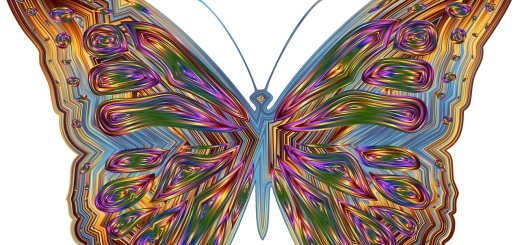The Taoist Journey to Eternal Life

Looking for more amazing products? Check out our online store and explore our collection here! Happy shopping!
Before diving in, please note: This post is for informational purposes only. If you’d like to know more about how we approach topics, feel free to check out our friendly Disclaimer Page.
Hey there, amazing readers! 
We’re committed to delivering quality posts, and your support (even just sticking around despite the ads) means everything to us. So, bear with us, and thanks for helping us keep the good vibes rolling. Now, on to the fun stuff!
TRANSLATE BUTTON AT THE END OF THE ARTICLE
A Quick Overview
Taoism, also known as Daoism, is an ancient Chinese philosophy and spiritual tradition that emphasizes living in harmony with the Tao, which translates to "the Way." Central to Taoism is the belief that the Tao is the underlying principle of the universe, guiding all things and balancing the forces of nature.
One of the central themes in Taoism is the quest for eternal life, which is seen as the ultimate goal of spiritual practice.
Through various practices such as meditation, qi cultivation, and alchemical processes, Taoists seek to attain immortality and transcend the limitations of the physical body.
This article will delve into the Taoist journey to eternal life, exploring its beliefs, practices, and perspectives on death and rebirth.
Introduction to Taoism and its beliefs
Taoism originated in ancient China and is attributed to the legendary figure Laozi, who is said to have written the Tao Te Ching, a foundational text of Taoist philosophy.
Taoism teaches that the Tao is the source of all existence, a mysterious and ineffable force that cannot be fully grasped by the human mind.
The Tao is believed to be the natural order of the universe, encompassing both creation and destruction, growth and decay.
Taoists seek to align themselves with the flow of the Tao, living in harmony with nature and the rhythms of the cosmos.
Understanding the concept of eternal life
In Taoism, eternal life is not simply the prolongation of physical existence but the attainment of spiritual immortality.
It is the transcendence of the cycle of birth and death, the liberation of the soul from the constraints of the material world.
Eternal life is seen as a state of being where one is in complete harmony with the Tao, free from suffering and the limitations of the ego.
Taoists believe that through spiritual practice and inner cultivation, one can achieve a state of eternal existence beyond the confines of time and space.
The importance of balance in Taoism
Central to Taoist teachings is the concept of balance, symbolized by the yin and yang.
Yin represents the feminine, receptive, and passive qualities, while yang embodies the masculine, active, and creative aspects.
Taoists believe that harmony is achieved through the dynamic interplay of these opposing forces, with neither dominating the other.
By cultivating balance in all aspects of life, individuals can harmonize their energy and align themselves with the flow of the Tao.
Practices for achieving immortality in Taoism
Taoists employ a variety of practices to cultivate vitality and longevity, with the ultimate goal of achieving immortality.
These practices include meditation, qigong (qi cultivation), tai chi, and internal alchemy.
Meditation is used to quiet the mind, cultivate inner peace, and connect with the spiritual essence within.
Qigong involves breathing exercises, movement, and visualization techniques to cultivate and circulate qi, the life force energy.
Tai chi is a form of martial arts that promotes balance, flexibility, and energy flow.
Internal alchemy involves refining and purifying the body’s energy to achieve spiritual transformation.
The role of meditation and qi cultivation
Meditation plays a crucial role in Taoist practices, serving as a means to still the mind, awaken inner wisdom, and cultivate spiritual awareness.
Through meditation, Taoists seek to enter a state of deep concentration and contemplation, connecting with the essence of the Tao within themselves.
Qi cultivation, on the other hand, focuses on harnessing and balancing the body’s vital energy to enhance health, vitality, and longevity.
By cultivating qi through breathwork, movement, and visualization, Taoists aim to strengthen the body, calm the mind, and awaken the spirit.
Taoist alchemy and the elixir of life
Taoist alchemy is a spiritual practice that seeks to transmute the physical body into an immortal form through the ingestion of the elixir of life.
This elixir is believed to confer immortality, rejuvenation, and spiritual enlightenment to those who consume it.
Taoist alchemists use a combination of physical and spiritual techniques to refine the body’s energy, purify the mind, and cultivate the spirit.
While the elixir of life is often metaphorical, symbolizing the transformation of consciousness, some Taoists believe in the literal existence of a physical elixir that can grant eternal life.
Health and longevity in Taoist teachings
Taoism places a strong emphasis on health and longevity, viewing the body as a vessel for spiritual growth and transformation.
Taoist teachings advocate for a holistic approach to well-being, encompassing physical, mental, emotional, and spiritual aspects of health.
Practices such as qigong, herbal medicine, acupuncture, and dietary therapy are used to maintain balance, harmonize energy, and promote longevity.
By living in accordance with the Tao and cultivating vitality through mindful practices, Taoists seek to achieve a state of optimal health and well-being.
The symbolism of nature in Taoism
Nature holds a central place in Taoist philosophy, serving as a source of inspiration, wisdom, and spiritual insight.
Taoists view nature as a reflection of the Tao, embodying the principles of balance, harmony, and cyclical transformation.
By observing the rhythms of the natural world, Taoists seek to learn from its wisdom and align themselves with its flow.
Mountains, rivers, trees, and animals are all seen as manifestations of the Tao, guiding individuals towards a deeper understanding of the universe and their place within it.
Confucianism versus Taoism on eternal life
Confucianism and Taoism are two prominent philosophical traditions in China, each offering distinct perspectives on the attainment of eternal life.
Confucianism emphasizes moral cultivation, social harmony, and filial piety as the key to achieving a meaningful existence.
Confucians believe in the importance of fulfilling one’s social obligations and creating a harmonious society through ethical behavior.
In contrast, Taoism focuses on inner cultivation, spiritual awakening, and alignment with the Tao as the path to eternal life.
Taoists prioritize self-realization, personal transformation, and spiritual liberation over societal norms and conventions.
The Taoist perspective on death and rebirth
Taoists view death as a natural part of the cycle of life, a transition from one form of existence to another.
Death is seen not as an end but as a new beginning, a return to the source of the Tao.
Taoists believe in the immortality of the soul, which continues to evolve and reincarnate in different forms throughout eternity.
Rebirth is seen as an opportunity for spiritual growth, a chance to learn, evolve, and transcend the limitations of the material world.
By embracing the cyclical nature of existence, Taoists seek to navigate the realm of death and rebirth with equanimity and wisdom.
Stories of immortal beings in Taoist mythology
Taoist mythology is replete with tales of immortal beings who have achieved eternal life through their spiritual practices and supernatural powers.
These immortals are revered as sages, teachers, and guardians of the Tao, offering guidance and inspiration to seekers on the path to enlightenment.
Legends of immortals flying on clouds, transforming into animals, and bestowing blessings upon mortals abound in Taoist folklore.
These stories serve as allegories for the spiritual journey of self-realization, inner transformation, and the quest for immortality that lies at the heart of Taoist teachings.
Modern interpretations of eternal life in Taoism
In modern times, the quest for eternal life in Taoism has taken on new meanings and expressions.
While traditional practices such as meditation, qigong, and internal alchemy continue to be valued, contemporary Taoists are exploring innovative approaches to spiritual growth and immortality.
Some Taoists incorporate technology, biohacking, and scientific advancements into their practices, seeking to enhance longevity and well-being through a blend of ancient wisdom and modern knowledge.
Others focus on environmental conservation, sustainable living, and social activism as a means to align with the Tao and promote a harmonious relationship with the natural world.
Conclusion
The Taoist journey to eternal life is a profound and transformative path that seeks to transcend the limitations of the physical body and achieve spiritual immortality.
Through practices such as meditation, qi cultivation, alchemy, and harmonizing with nature, Taoists aspire to align themselves with the Tao and attain a state of eternal existence.
By cultivating balance, wisdom, and vitality, individuals can navigate the complexities of life and death with grace and equanimity.
The stories of immortal beings in Taoist mythology serve as inspiration and guidance for seekers on the path to enlightenment.
In the ever-evolving landscape of modern Taoism, new interpretations of eternal life continue to emerge, blending ancient traditions with contemporary insights to illuminate the way towards spiritual liberation and immortality.

The Enlightenment Journey is a remarkable collection of writings authored by a distinguished group of experts in the fields of spirituality, new age, and esoteric knowledge.
This anthology features a diverse assembly of well-experienced authors who bring their profound insights and credible perspectives to the forefront.
Each contributor possesses a wealth of knowledge and wisdom, making them authorities in their respective domains.
Together, they offer readers a transformative journey into the realms of spiritual growth, self-discovery, and esoteric enlightenment.
The Enlightenment Journey is a testament to the collective expertise of these luminaries, providing readers with a rich tapestry of ideas and information to illuminate their spiritual path.
Our Diverse Expertise
While our primary focus is on spirituality and esotericism, we are equally passionate about exploring a wide range of other topics and niches 

To ensure we provide the most accurate and valuable insights, we collaborate with trusted experts in their respective domains 
Our blog originally focused on spirituality and metaphysics, but we’ve since expanded to cover a wide range of niches. Don’t worry—we continue to publish a lot of articles on spirituality! Frequently visit our blog to explore our diverse content and stay tuned for more insightful reads.
Hey there, amazing reader! 
Check out our store here and take a peek at some of our featured products below! Thanks for being awesome!











